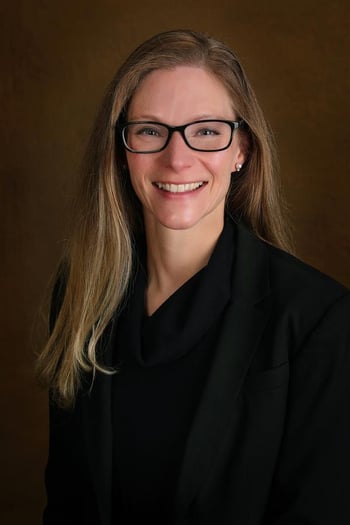Over the past few years, Camille Stewart, MD, assistant professor of surgery in the Division of Surgical Oncology, has conducted research for the Society of Surgical Oncology (SSO) to examine unconscious bias within the organization. In her studies, Stewart examines unconscious bias and microaggressions by focusing on the subtle differences in introductions of speakers at professional meetings and conferences.
 |
|
Camille Stewart, MD |
“Within medicine, unconscious bias may manifest in the introduction of speakers at professional meetings,” Stewart says. “The use of a professional form of address such as ‘doctor’ or ‘professor’ while introducing a speaker often implies authority of the speaker and respect by the introducer. Introducing someone without their professional title may imply the opposite.”
What is unconscious bias?
Unconscious bias (also known as implicit bias) is when people act on the basis of prejudice and stereotypes without intending to do so. This tends to have the greatest impact on members of underrepresented groups, including those based on race, gender, or sexual orientation.
Study reveals unconscious bias by hierarchy and professional experience
Stewart was first introduced to the topic of unconscious bias when she met Narjust Duma, MD, a medical oncologist from the University of Wisconsin. Duma’s research looked at speaker introductions at the American Society of Clinical Oncology (ASCO). Her study published in the Journal of Clinical Oncology revealed women were less likely to be introduced with their professional titles compared to their male colleagues. Whereas male speakers were introduced with their professional titles 81% of the time, female speakers were introduced with their professional titles only 62% of the time.
Additionally, men were also much more likely to do this to their female colleagues. These findings had a significant impact on the medical oncology community, leading ASCO to create faculty presentation guidelines for their meetings. Stewart connected with Duma and expressed interest in doing a similar work within the SSO.
Stewart observed speaker introductions during SSO meetings from 2018–19. After reviewing hundreds of recordings from those meetings, she and her co-authors primarily discovered bias manifested by academic rank instead of gender. The study also highlighted the low number of people of color represented in the organization. The results were published in the Annals of Surgical Oncology.
“Physicians who had not yet become faculty were more likely to be introduced without their professional title,” Stewart mentions in the study. “Further, the use of a nonprofessional form of address was significantly more likely as the introducer’s academic rank increased. This suggests that within the SSO, the greatest bias is against the youngest physicians, and that bias is expressed most strongly by the most senior physicians.”
The findings prompted the SSO to begin asking its members how they wanted to be addressed when being introduced to speak at their annual meeting. They also started collecting demographic data about their membership. The results of this follow-up work were recently presented at the 2021 Society of Surgical Oncology Annual Meeting.
Stewart and her colleagues found that the majority of abstract presenters wanted to be addressed with their professional title when introduced to speak. Their follow-up survey also led to another notable discovery: SSO members were more comfortable revealing their genders compared to their race. 94% of members reported their gender, but only 70% reported their race. This sparked new questions for Stewart.
“Why is there a stigma on reporting race in our membership? How are we going to promote equity or diversity if we can’t measure it? If having diversity is something we want, then we have to get comfortable saying who we are,” Stewart says.
She follows this with a call to engage mentees from different backgrounds.
“A lot of people choose their medical specialty based on their mentors. If we want intentional growth in the SSO, I think that means we have to be mentors for people that don’t look like us,” Stewart says.
Stewart also emphasizes how the different experiences each individual shares help to bring a new perspective to everyone within the organization. This newfound perspective can help with advancing scientific research and bringing new questions to the table.
Creating new guidelines
Stewart’s findings prompted changes within the SSO. The changes, also known as “Guidelines for Respectful Discourse,” outline a set of suggestions to properly communicate with both patients and colleagues. These were distributed to moderators for the 2021 Society of Surgical Oncology Annual Meeting.
The guidelines encourage gathering multiple opinions during academic discussions, using consistent forms of address during speaker introductions, and striving to use gender-neutral language. Importantly, they acknowledge that deviation from these guidelines may occur and encourage respectful correction when this happens. The guidelines were created with the intention of helping maximize the ability to learn from one another while maintaining a balanced level of respect for everyone in attendance.
“Unconscious bias exists, and it’s real. The only way we can combat it is to acknowledge it,” Stewart says. “We are trying to make people become aware of it. Nobody is doing it on purpose, but it still has adverse outcomes.



